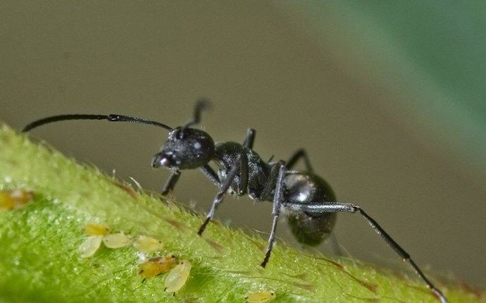Ants can be found all across the country, and South Carolina is no exception. In past blogs, we have touched on carpenter ants, fire ants, and pharaoh ants, but what about odorous house ants? We know carpenter ants can destroy homes with their tunneling capabilities, fire ants can sting and bite, and pharaoh ants can destroy food and become problems in hospitals, but what threats do odorous house ants present? These ants invade homes in search of food and leave an unpleasant scent behind, but are they dangerous? Like most pests, though they don’t cause immediate harm, their presence can be a nuisance and can signal other underlying pest problems as well.
How Can You Identify Odorous House Ants?
Like most ants, odorous house ants are small; these ants reach only about ⅛” in length and are usually brown or black. Most other ants do their work only during the day, but odorous house ants forage for food both day and night, so if you spot ants in your home during the nighttime, you might just be seeing odorous house ants. One way to distinguish an odorous house ant from other kinds of ants is by their smell; when crushed, odorous house ants emit a rotten coconut scent, hence their name.
What Problems Do Odorous House Ants Cause?
The biggest issue that odorous house ants cause inside homes is food spoilage. When inside homes, these ants are on a constant search for a food source. They enjoy sweet and sticky foods, which can make them even more of a problem in the summer months when popsicles, watermelon, fruit juice, and ice cream are plentiful!
An interesting fact about odorous house ants is that if they find an abundant food source, they will move their whole colony closer to that food source to reduce how far they must transport the food back to their nest; this means that if these ants find a good food source in your home, a whole colony might move in, which brings a whole other host of problems, including food contamination and just the simple annoyance of an infestation! Odorous house ants have been known to make their nests in house plants, under heat registers, in insulation, and anywhere close to a source of food and moisture.
How Can You Prevent Odorous House Ants?
One of the best ways to prevent odorous house ants is keeping your home tidy and pest-proofed, which means cleaning up spills quickly, taking out trash regularly, sealing food in airtight containers, keeping produce in the refrigerator, vacuuming and sweeping frequently; all these methods help to eliminate the food sources that may be drawing these ants into your home.
Repairing holes in screens, using weather stripping under doors, sealing cracks in your home’s foundation or siding, and eliminating entryways in basements or eaves and around windows can also help to keep ants out of your home. In addition, cleaning up around your yard, eliminating leaf or decaying yard debris, cutting plants back away from your house, and making sure that your gutters and drains are in good repair may also help keep odorous house ants from being attracted to your yard.
If these prevention methods fail to keep these ants out of your home or off your property, give us a call today. We offer customized comprehensive pest control plans to not only rid your home of current ant infestations but to protect you and your family from other nuisance pests as well!

